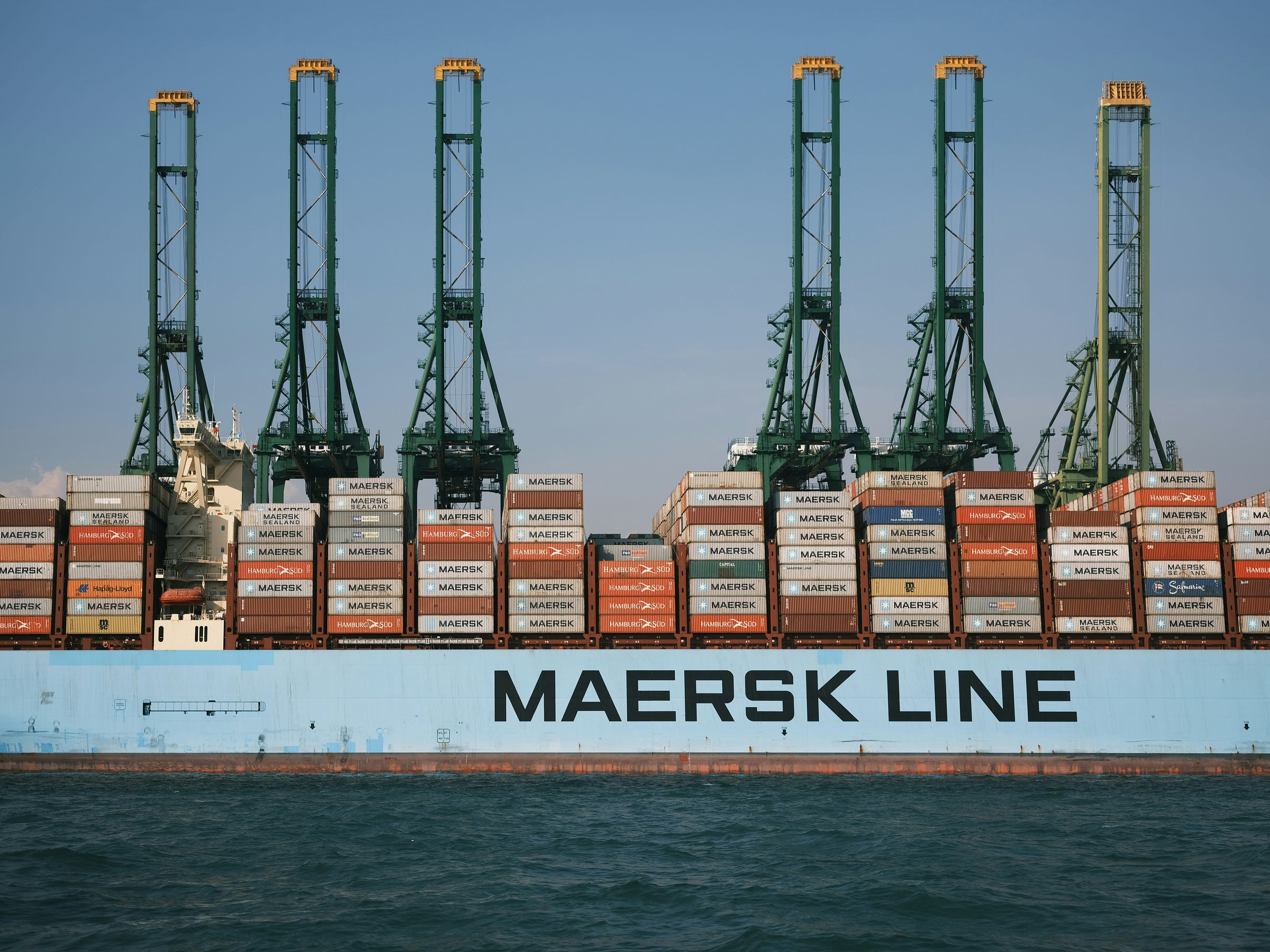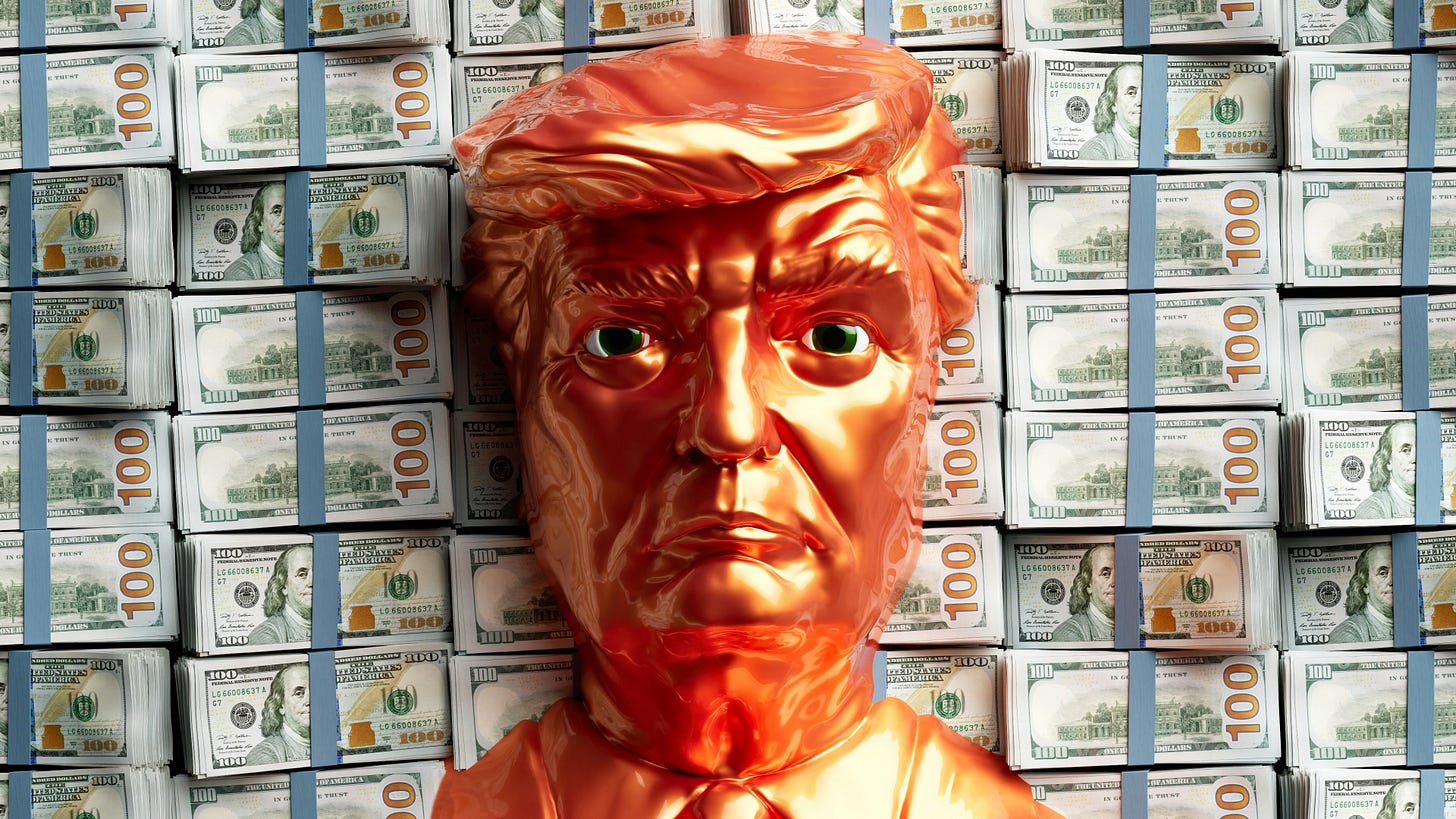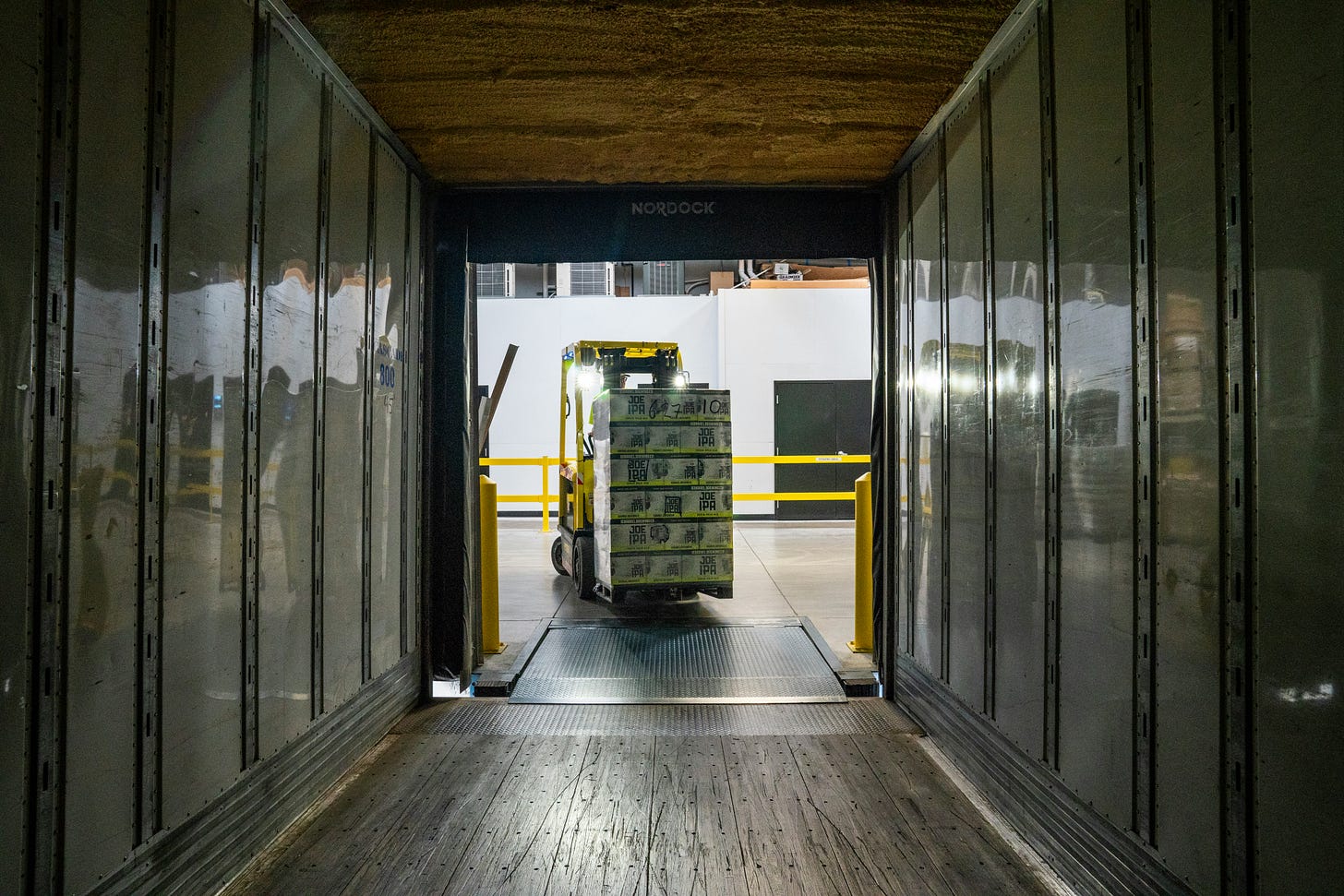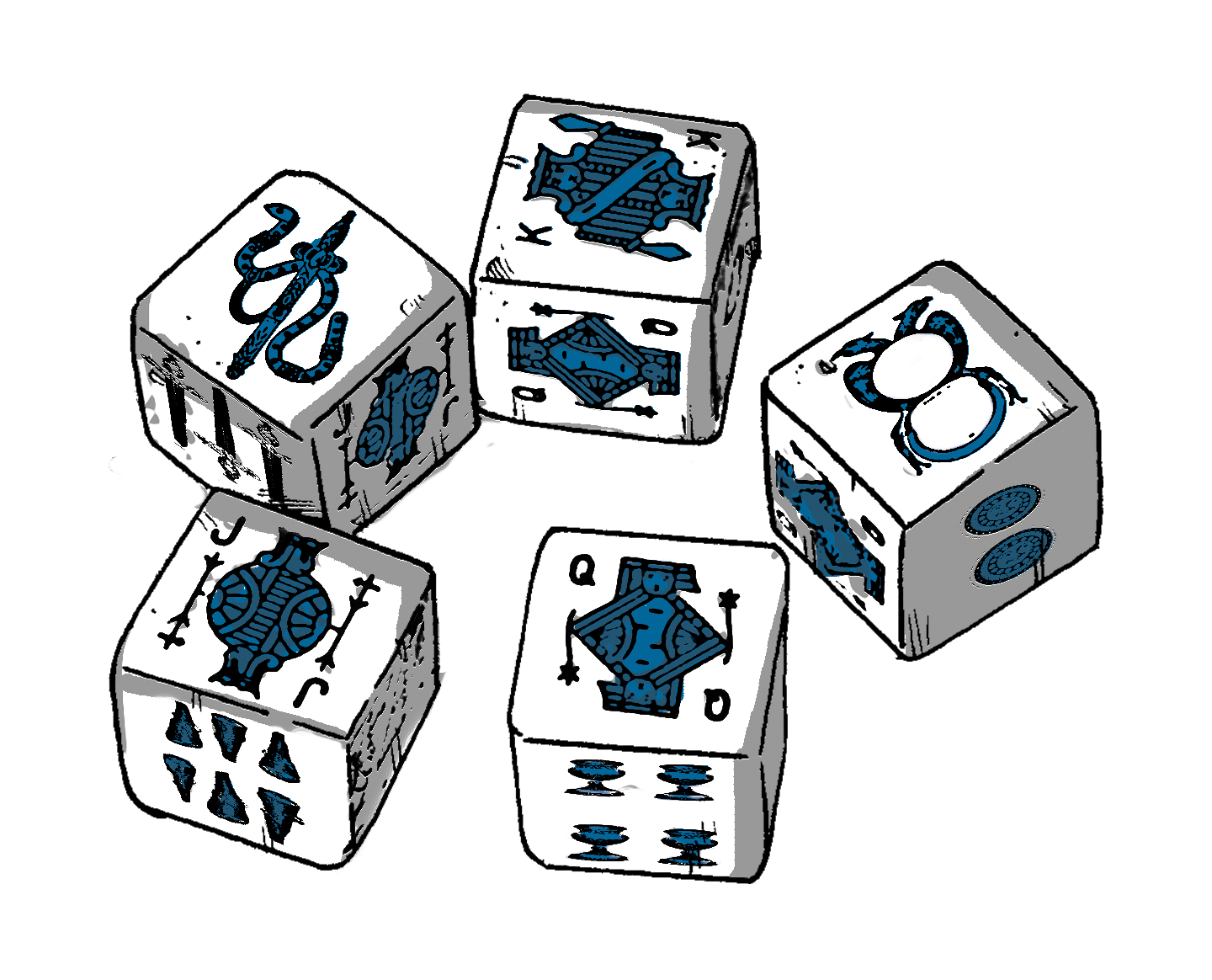Not-so-reciprocal tariffs in the tabletop gaming industry
How the tariffs will shape the TTG and TTRPG space, and what we can do about them.

This is a newsletter that’s new not only in format but also in content. We realized that maybe two articles per month—often long and not exactly easy to digest (let’s blame our Italian-ness!)—were a bit too much. So we’ll try switching to one article a month, maybe even more in-depth than before. We’ll use the closing part of the newsletter to share products, posts, and ideas we like from other creators in the TTRPG space. What’s also different in this newsletter is the voice, because the star of the article is a special guest: Roberto Di Meglio from Ares Games.
The topic of reciprocal tariffs seemed like an interesting one to explore. Still, we have to admit we’re clueless about it—despite one of our members having a (wasted) political science degree hidden somewhere, probably in grandma’s soup tureen. We could have given our gut opinion and maybe compared Hasbro apples with Fantasy Flight Games oranges, but we’ll leave the task of making fools of themselves to others. Instead, we asked Roberto, who makes a living from games and has a global perspective on the topic, to shed some light on the issue. Let us know what you think of this new style or if you prefer the old one. We promise guest posts won’t become the norm, but this opportunity was too good to pass up.
Trump’s Tariffs and their impact on the tabletop gaming industry
Hello! This is my first contribution to the Oddplan Substack (and to Substack in general!), so let’s start with a short presentation. I am Roberto Di Meglio, and I have been professionally involved with the tabletop gaming industry since almost 40 years ago—publishing RPGs and boardgames, gaming magazines, distributing, importing, and exporting games, consulting on crowdfunding, and coordinating multi-language print runs of CCGs. At present, I am director of production of Ares Games, a board game publisher with offices in Italy and USA, and a professor of board game design at the “Scuola Internazionale dei Comics” in Florence.
Unless you’ve been living under a rock, you probably have heard multiple times about the so-called “reciprocal tariffs” imposed by the current Trump administration on imports of almost every product, from all over the world, into the US. I could start a political rant, but I will try to restrain myself and keep the focus on facts and their expected impact on all “stakeholders” of the gaming industry – publishers, distributors, retailers and gamers.
The Facts
After declaring a national emergency—a necessary step to have the power to impose tariffs without the approval of the US Congress—the POTUS imposed tariffs on products imported from China, with a sweeping series of executive orders—first 10%, then 20%, then on top of that a variable “reciprocal tariff” (calculated with a formula that forced all the world’s economists to roll a Sanity Check) which was an additional 125% in case of China—for a 145% total, effective an all goods shipping after April 9th.
The 10% “baseline” tariff was also imposed on all other countries, and “reciprocal” tariffs for the European Union were set at 20%, for a total of 30%. For the moment, the reciprocal tariffs have been suspended (except for China), but they could come back any day, if Trump so wishes.
In a nutshell—today, April 21st:
Imports into the USA from China are subject to a 10% tariff if they shipped in February; 20% tariff if they shipped in March; and 145% tariff if they shipped after April 9th.
Imports into the USA from Europe are subject to a 10% tariff, and they might be subject to a 30% tariff in the near future.
The effect of tariffs is, for all practical purposes, equivalent to an increase in the production price of a producer, or the purchase price of the importer. They are not paid by the exporting country, they are paid by the company which is importing the goods—and as a consequence, those goods will surely have a higher price for the final buyer.
These tariffs apply to almost all products typical of the tabletop gaming industry—board games, dice, cards, sleeves, miniatures. Fortunately, they do not apply to books, even if there are some interpretations which argue that custom officers might decide that RPG books are games, and not books. While customs have a high degree of latitude in deciding how to apply duties and taxes, I personally think this is unlikely to happen, and that the exemption on books will apply to RPG manuals as well as any other type of book.
It’s a very unfortunate coincidence that in recent times, more and more RPGs include boardgame-like components, which are subject to tariffs just as boardgames are. Tariffs also apply to typical RPG accessories, such as dice. From a customs’ perspective, it’s not really so important how the game plays, but what it (or its parts) looks like.

Why should I care?
Since the end of WW2, the global economy has become more and more interconnected. The process accelerated greatly in the last 50 years, to the point that the US economy transformed into a service-centered economy and most of manufacturing has been delocalized to other countries. The decision of the USA to raise such a high wall to imports from all over the world, and especially for China, is going to affect everybody—the flight of a butterfly in Brazil can cause a hurricane on the other side of the world, Chaos theory teaches us. And these tariffs are much, much stronger than the flight of a butterfly…
Let’s look at why the tariffs are so relevant to the gaming industry, specifically, then we can understand better their impact.
There is almost no game production or printing industry in the USA anymore. The USA game market is almost entirely dependent on imported products. For many years, game publishers have been printing in China and, to a lesser extent, in Europe. Plastic miniatures, dice, card sleeves, metal tins are almost exclusively manufactured in China. The printing industry in Europe is still quite competitive and advanced, and many RPG publishers still print in Europe. A few good factories can produce quality boardgames in Europe (especially in Germany and East Europe), even if they are more costly than China production, and they still depend on China for special components, such as plastic figures.
The USA is the single most important market for game publishers. The fact that games sold to the USA from other countries, and especially games manufactured in China, become more costly due to the effect of the tariffs (and risky, as the tariffs might change anytime because of a new decision by the POTUS), means that fewer games will be sold—people will just buy fewer games to make up for the higher cost. Sales will go down, and distributors and retailers will see their business decrease. We can expect some of them—already fragile because of the competition of Amazon, POD, digital products—to go out of business. This in turn will further decrease sales for publishers, in a potentially deadly spiral.
The USA is a logistical hub for worldwide English sales A new game does not sell its entire print run on the day it is printed—it sells over a period of several months, so a warehouse is necessary to fulfill continuing sales. Small or medium companies cannot have multiple warehouses all over the world. Most of the time, products are printed in China, sent to the USA, then sent from a US warehouse all over the world. With the tariffs, this process is not possible anymore and the logistic chain will become more complex and more costly, damaging the profits of the companies, hence their chances of survival.
The effect will not be limited to the USA. A crisis in the US market becomes a crisis for any company operating on an international level. My company, Ares Games – an Italian company publishing games in 15 different languages—has more than 1/3 of its sales in the USA. If our games are subject to a 30% (if printed in Europe) or 145% (if printed in China) tariff, they will become very hard to sell in the USA, and we might as well “lose” that market entirely. Losing 1/3 of the sales, especially in such a sudden and unexpected manner, can be a deadly blow to a company.
Ok, but I am not a gaming company!
Don’t worry, tariffs will not apply to games already on your shelf, and you can be moderately concerned about publishers or retailers going out of business, unless you are a friend or relative.
However—even if you are interested in games just as a gamer, remember the impact of these tariffs on the economy will creep into ALL sectors, from shoes to electric appliances. You might as well decide to play with the games in your collection for years to come, without worrying too much about game publishers, distributors or retailers going out of business—but it’s very likely that you will see effects in other areas of your daily life.
The fact that the “national emergency” declared to start this trade war can be used for many other actions which somehow put in danger the normal functioning of USA politics, can also be a reason of concern, but here the discourse becomes too political, so I will not delve further into this topic.
And as a publisher, what are you going to do?
Game publishers are trying to find a wide variety of solutions to the current crisis. We are all gamers, and we love a good challenge! Hopefully, we will find a way to survive the tariffs, like we survived the COVID-19 pandemic, the sub-prime crisis, and other assorted calamities. Here’s a bucket list for publishers trying to weather this new storm.
Rise prices. This is the easiest one, of course. A simple way to handle 10%, or even 20% tariffs. Products now cost more, after shipping and duties are considered, so they will be sold at a higher price. A moderate increase in price will probably bring a moderate decrease in sale volume, but the two should balance out. It is too bad that this does not work to handle 145% tariffs. It’s also very likely that companies will increase prices outside of the USA to balance the losses they will suffer on the US market.
Develop the markets outside of the USA. The USA is a big market, but the world is an even bigger place. To survive, publishers will need to focus less on the English-speaking market in general, and the USA specifically, and invest the same energies in other markets instead. For example, Ares Games will decrease drastically the number of shows we attend in the USA and use the money we save to develop other markets instead.
Keep logistic chains out of the USA. Shipping directly from the manufacturing location (China, Germany, whatever) to distributors, stores, and gamers all over the world, and establishing warehouses in Asia, Europe, Canada—anywhere but the USA.
Selling direct as much as possible. Tariffs hurt all sales, but especially the sales going through the traditional 3-tier distribution system (publisher-distributor-retailer). This system is based on multipliers – a publisher sells to a distributor at twice the production cost, the retailer sells to the final customer at twice the purchase cost. Hence, if the production cost increases by 145%, the final cost will increase by a similar amount. However, in direct sales, the publisher can decide to pass to the final customer just the net cost of the tariff – which is 145% of the production cost, not of the retail cost. For example – a game with a production cost of $ 10 is on the store shelf at $ 50. If that game suddenly costs $ 24.5 because of tariffs, the cost on the store shelf necessarily becomes 5 times as much - $ 122.5 But if the same game is sold direct to a gamer, the publisher can add just the $14.5 tariff cost – and the game becomes $ 64.5 in price, not $ 50. “Just” a 30% increase!
Selling digital or POD. Tariffs would not apply to digital sales, and Print-on-demand is normally made locally. Oddplan is already doing this, fortunately for them. Ares Games is not, unfortunately! Our products are a little too component-heavy to be suitable for this solution.
Sue the US President. I am not joking. Gaming companies are starting to do that. Stonemaier Games just announced they are leading a class action for gaming companies. There is solid legal ground to argue that these tariffs are illegal, and that the POTUS does not have the power to enforce them.
And remember—you will see these solutions showing up in and by all other industries, not just games. This is why I said that you will see the impact of the tariffs on your daily life, not just on your gaming habits.

Why can’t you just print your games in the USA?
Unfortunately, it is not an option, at least for years to come. What’s left of the US board game manufacturing industry (and, I imagine, many other industries as well) it’s not modern and efficient enough to produce games with a quality/cost ratio that 21st century gamers will accept. Just compare a game produced in 2025 with a game from 1975 to understand what I am talking about. And I think that even a game like those published by Avalon Hill, SPI or TSR in the ‘70s or ‘80s will be hard to manufacture with a good quality and cost in the US today. It was difficult even back then, by the way—Avalon Hill could only survive because it was bought by the printing company, Monarch, which manufactured their games, and SPI, the biggest board game publisher of its age, went bankrupt.
Even if the USA starts developing their manufacturing capabilities again, it’s a process which takes years, not days or months. Many also argue that such a process is also impaired by tariffs imposed so suddenly—machines, materials, mechanical parts are also subject to tariffs, so creating a factory in the USA is also much more costly than it was before the tariffs. And to make big investments, an entrepreneur should trust that the policy of the US government will not change for years to come. I cannot imagine many will risk their money betting on the long-term coherency of the policies of the current American president.
One last word on the topic
Even if the tariffs should be revoked tomorrow, the pure chaos and uncertainty generated by the executive orders of the POTUS in the past two months will force most businesses around the world to do many of the actions I outlined above anyway, with a terrible damage to the economy of the USA—and as a consequence, to the global economy. The djinni (mutual trust in world trade) is out of the bottle, wishes are all gone, and the genie is not going to be trapped in again soon…
Toybox: Atheists Adventure Hooks
The life of an Atheist is complicated, and there's never a time when they can Pull a String of Fate without something absurd, disastrous, or at the very least bizarre happening around them.
That's why we've created a Rollable table of Adventure Hooks for those who want to experience the adventures of these mages immersed in the world of MythPop.
You can find Atheists on Itch.io and DriveThruRPG.
Things we loved this month
The Kickstarter for Solo Borg by of the just wrapped up, co-authored by the amazing Beyond Cataclysm, and it pulled off an incredible result for a first-time project on a platform that’s basically a battlefield these days. It’s almost like a good idea, developed with skill by decent and approachable people, actually works! Who would’ve thought?
These are the final days of the Bitter Chalice campaign by World Anvil, the same team behind ENNIEs-nominated Broken Tales and Dead Air: Seasons. Bitter Chalice blends a robust TTRPGs framework with a traditional tabletop feel, drawing inspiration from Soulslike videogames, soaked in melancholy, dread, and brutal pummeling—think Elden Ring and Hollow Knight. We’d tell you to follow their Creative Director, on Substack, if only he didn’t insist on speaking to morons like us in Italian.
We love Blackoath Games because they do things their own way. While everyone else uses Kickstarter to sell you practically finished books, they go for a real pre-order campaign on a real page on a real website. If you want their new game, you’ll have to go through their site or their Patreon. No digital stores beyond their own. And if that’s a problem for you, maybe find something better to do than playing Machine Gods of the Noxian Expanse—though frankly, we find that scenario highly unlikely.
Pressure12, our new SRD for solo and one-page games, is now available on itch.io and DriveThruRPG. It’s short, free, and has an open license, so you have no reason not to read it. We can also send it to your inbox if you are a Substack subscriber; it’s your choice.





